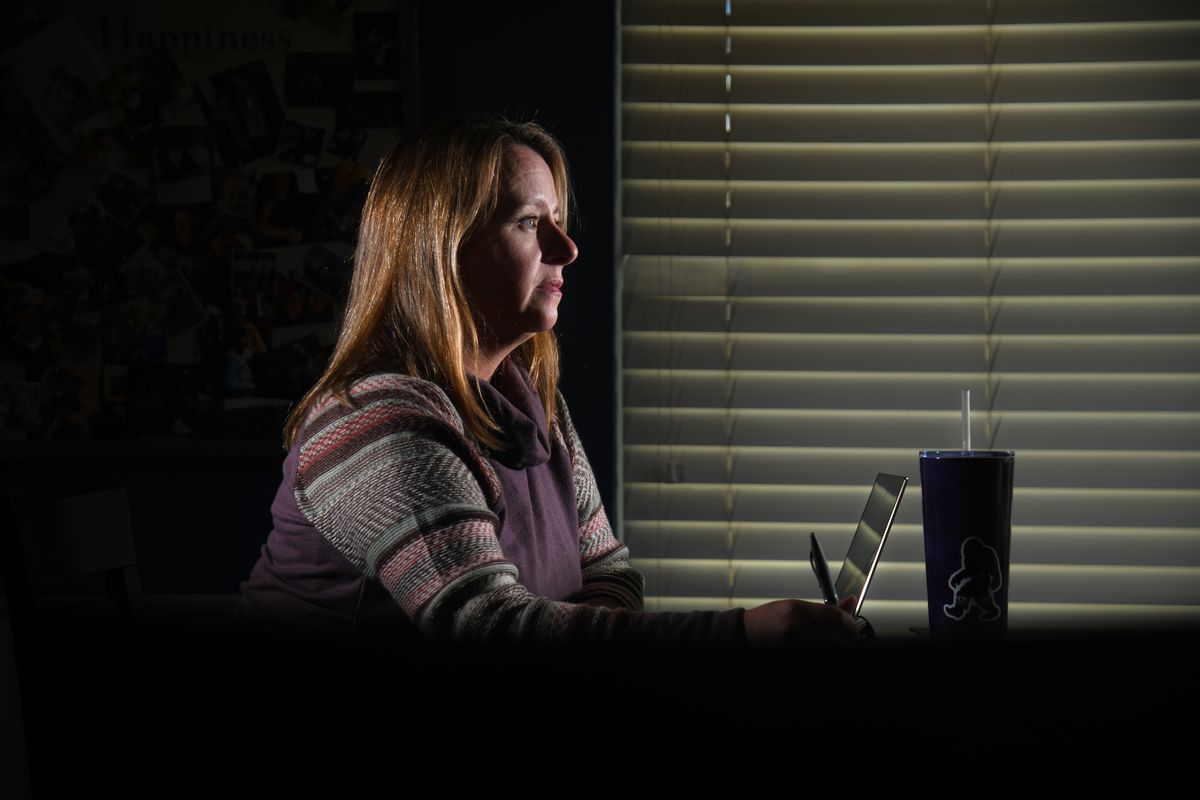Teaching civics to outspoken students got tougher in the midst of protests, pandemic and presidential election

As if managing a high school civics class wasn’t stimulating enough, along came COVID-19 and one of the most contentious election seasons in history.
But local teachers are up for the challenges, with one main goal.
“If my seniors walk out of here in June and they are thoroughly empathetic citizens, then I’ve done my job,” said Mt. Spokane High School teacher Danny Figueira.
That job is getting more complicated. In-person or from home, students are coming to class with more information than ever.
And yet, according to Figueira, “I wouldn’t say they are more informed. But they do have a strong sense of political ideology.”
Mara Bischoff, a social studies teacher at Ferris High School, agreed.
“I would say our classes are deeply divided,” said Bischoff, who has made it a priority to “respect each other’s voices.”
“We all come from different places that we want to feel able to share things,” Bischoff said.
“This is a place where we need to feel safe to say those things.”
For generations, civics teachers have tried to spark honest, thoughtful discussion about the democratic process, the role of the media and the branches of government.
Lately, the challenge has become how to kindle honest discussion without causing a bonfire.
COVID-19 hasn’t helped. At Mead High School, teacher Dave Stedman must manage two sets of classrooms under the district’s hybrid learning model.
That means he must engage two sets of students – the ones sitting in front of him and those on the laptop screen.
“That’s wearing me out,” Stedman said. “To be fully present with the kids in your class and with the kids on your computer.
“I really do miss having all the kids together in one class.”
Meanwhile, Bischoff will be working with distance learners for the foreseeable future.
“Some of them are frustrated, and I don’t know what’s happening in their homes,” Bischoff said.
However, she said online attendance is strong. Another plus is that shy kids are more inclined to speak up from home.
“It’s a better way to say something without being judged,” Bischoff said.
Even 16-year-olds come to class with preconceived notions of politics, a byproduct of social media and other news sources.
To improve critical thinking, all three teachers demand that students take a hard look at where they’re getting their information.
Bischoff encourages her students to seek information from news services such as Reuters and the Associated Press, even a foreign outlet such as the BBC, rather than American mainstream media.
At Mt. Spokane, Figueira acknowledges that students are getting their information from “polarizing sources,” either at home or on social media.
Figueira and his class examine a topic from multiple news outlets, study the headlines and how the subject is portrayed.
Stedman takes the process a step further. In his senior Advanced Placement Government class, students are asked to examine commentary and analysis stories, along with sources of different reliability and bias across the political spectrum.
“Then they can ask themselves, how does that line up with their own views?” Stedman said.
All three teachers agree that students – some of whom are casting ballots this year – aren’t the least bit shy about expressing their views.
That can put teachers in an awkward spot, especially during a time when even face coverings have become political. Some students are looking for biases and are all too ready to report them to their parents.
Even before the school year begins, Stedman tries to reassure anxious parents “that I’m not going to mess up your kid.”
He also begins the year with an assumption: “That we’re not going to change people’s minds.”
As in generations past, civics teachers acted as moderators and mentors, all while walking a fine line.
This year has offered plenty of fodder for discussion. Besides the election itself, there’s the Black Lives Matter protests, the partisan divide over masks and COVID-19, and the issue of a peaceful transition of presidential power.
Some teachers see the latter as a learning opportunity, a chance to explain what the U.S. Constitution says about election procedures and presidential succession.
“I try to let them know that the decisions they are making now are ones that are going affect their lives and their kids’ lives,” Figueira said.